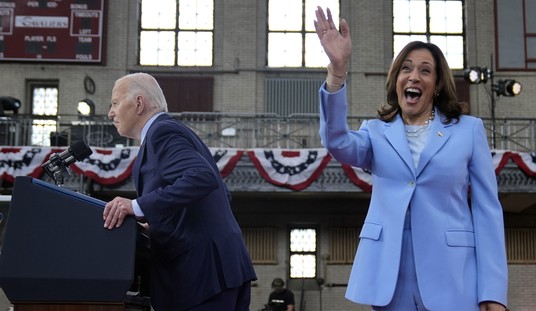Michael Crowley at the New Republic argues that Osama, if his rhetoric is taken to its logical conclusion, is exiting Iraq to fight in Afghanistan. Crowley raises two questions, none of which have obvious answers. The first is that the fight in Afghanistan is likely to be much larger than most of Obama’s supporters realize. Using John Nagl’s troops to population yardstick as a measure, Crowley finds that Afghanistan will be a major undertaking in itself.
But his second question is more important. Is Afghanistan the strategically important target? Or is it Pakistan? And if so, then Nagl’s cost estimates don’t even begin to convey the scale of the resources that will be necessary for Obama to defeat Osama.
The linchpin of Obama’s case for escalating the war in Afghanistan is that, unlike Iraq, it’s in our strategic interest. But, the closer you look at that premise, the blurrier it can get. The tale of Rauf’s demise illustrates that our strategic interest may best be served by focusing on Pakistan. The inconvenient fact is that, since September 11, Pakistan, and not Afghanistan, has emerged as Al Qaeda’s true home. “Al Qaeda isn’t in Afghanistan, they’re in Pakistan,” says Kenneth Pollack. Pakistan offers the Taliban sanctuary, which in turn allows Taliban fighters to escape annihilation by NATO forces who can’t chase them across the border. Adds Pollack: “It’s clear that you cannot solve the problems of Afghanistan without solving Pakistan.”
But “solving” Pakistan is an entirely different project than winning in Afghanistan. It is a matter of diplomacy and foreign aid, not large contingents of ground troops. It requires boosting the economy of a country now teetering near bankruptcy. And it entails, as Obama’s team has acknowledged, a new push to soothe the extreme tensions between Islamic Pakistan and its Hindu rival, India. Hatred for India foments radicalism on the margins of Pakistani society. And it leads Pakistan’s notorious intelligence services to provide support for the Taliban, which it sees as a buffer against creeping Indian influence within Afghanistan. This problem, of course, grew exponentially more confounding once the first shots rang out at Mumbai’s Chhatrapati Shivaji Terminus last week and is unlikely to be solved by more American troops in Afghanistan.
… All of this raises the question of whether a major troop escalation is truly worth the costs. According to a recent Washington Post report, military planners are debating whether a smaller U.S. contingent, based around Special Forces and military trainers for Afghan security forces, and complemented by Predator drones, can achieve a reduced set of U.S. goals–namely, preventing Al Qaeda from reconstituting.
When I asked John Nagl about such a scenario, he bristled at the thought. Nagl still believes that Afghanistan is a good war for both moral and strategic reasons. “I think that, without a very substantial commitment to the government of Afghanistan, there’s a very real chance that the Taliban returns to power there,” he says. “I think that would not be good for the stability of the government of Pakistan. And I am personally unwilling to let a regime that throws acid in the faces of little girls who go to school take power.”
But the circumstance that al-Qaeda’s forces are currently in Afghanistan/Pakistan still leaves open the question of whether their ouster from these countries will effectively end the Jihad against America. Afghanistan and Pakistan may simply be the Fort Braggs of the Jihad, yet driving them away from these places does not necessary destroy or weaken the wellsprings of the ideological system from which they spring. Much of that foundation is is really based and funded from the Middle East.
Personally I think Obama — or at least some of his supporters — may have seen Afghanistan as a surgical replacement for a decades-long fight against radical Islam. But they may find, as cancer surgeons often do, that way leads on to way and that Afghanistan and Pakistan, rather than being doors to be closed, are merely portals onto a vista they never hoped to see.









Join the conversation as a VIP Member